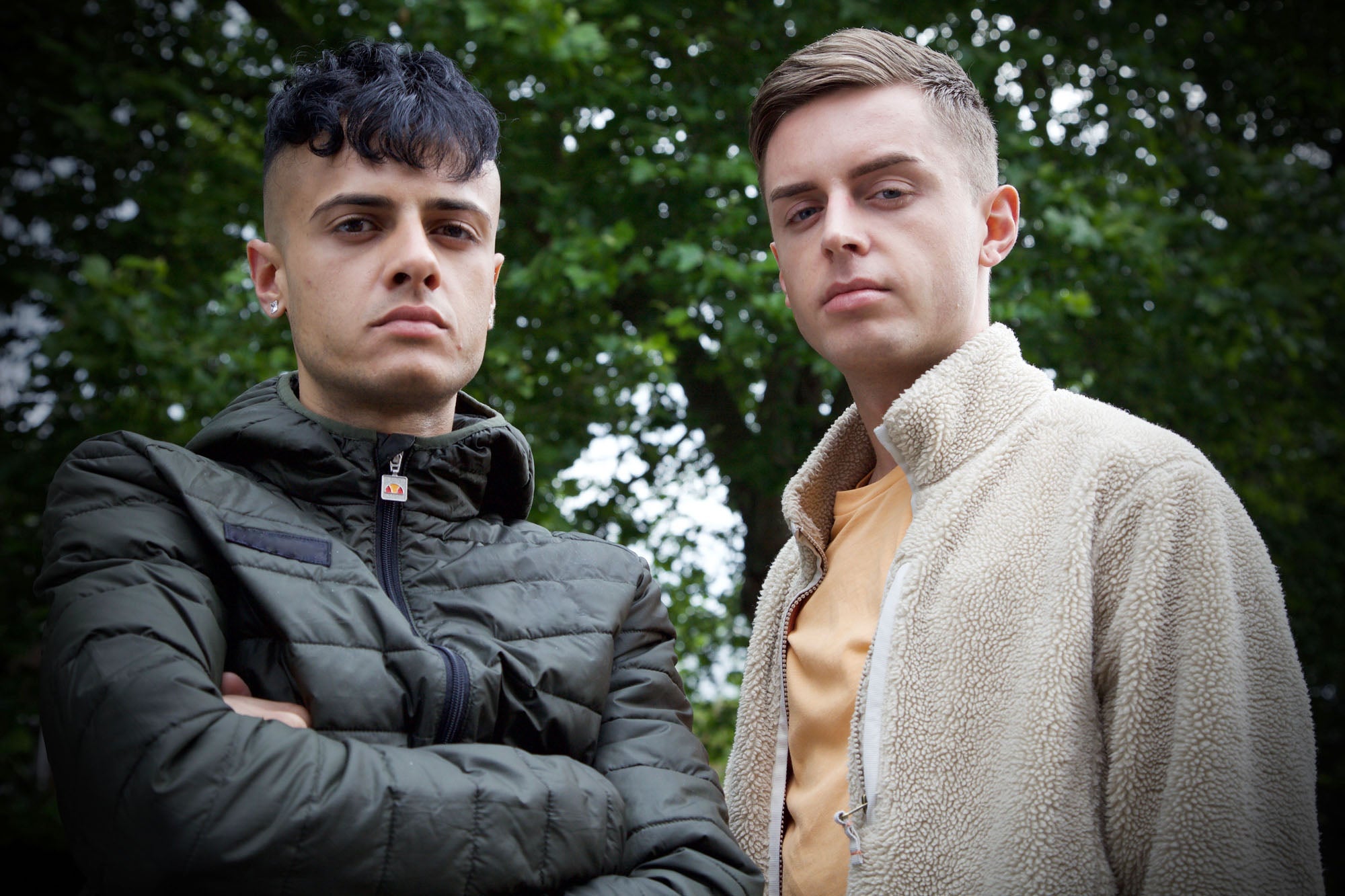TV preview, Is it Safe to be Gay in the UK? (BBC2, Tuesday 9pm): The short answer is – not really
Plus: Queers (BBC4, Monday to Thursday 10pm and 10.20pm), Storyville: Queerama (BBC4, Monday 10.40pm), Prejudice and Pride:The People's History of LGBTQ Britain (BBC4, Thursday 9pm), Queer as Art (BBC2, today 9pm), Does God Hate Queers? (BBC1, Thursday 11.25pm), The Windsors (Channel 4, Wednesday 10pm), World War One Remembered: Passchendaele (BBC2, Sunday 7pm), The Sweet Makers (BBC2, Wednesday 8pm), Inside the Factory (BBC2, Tuesday 8pm), BBC Proms (Friday, Friday 8pm)

Even after the partial decriminalisation of gay sex in 1967, for decades the only representations of “gayness” on British television were stock camp characters such as Mr Humphies (John Inman) in Are You Being Served?, closeted camp personalities such as Kenneth Williams, Larry Grayson and Frankie Howerd, stand-up comedians telling their audiences that they had “got three kids – one of each” and the odd nervous documentary about the love that dare not broadcast its name, featuring footage of men dancing uneasily with other men in fuggy private clubs.
How times change, and I hope for the better. The breakthroughs were probably John Hurt starring as the magnificent Quentin Crisp (self-described as “one of the stately homos of England”) in The Naked Civil Servant in 1975: and the television advertising campaign about Aids in the 1980s – “don’t die of ignorance”, which meant for once that society had to take gay sex seriously and the medical emergency meant it couldn’t be ignored. Successive changes in the law and public attitudes, all the way through to gay marriage and adoption, have also changed the acceptability of homosexual themes in the media. (I’m sorry if my language sounds a bit old-fashioned there, as my views are not.)
Anyway, all through the half-century celebrations of the Sexual Offences Act we’ve had gay sex rammed down our throats, as the critics used to say, and, so far as I can tell, most of it has been excellent and compelling viewing. These seasons continue, and there are more highlights next week. Is It Safe to be Gay in the UK? may shatter a few illusions for a start, for those of us who think “queer bashing” is a thing of the past. What we now identify as homophobic attacks and bullying is still going on.
Queers, a sort of historical/gay version of Alan Bennett’s Talking Heads monologues, is another excellent watch, showcasing the fine talents of Ben Whishaw, Fionn Whitehead, Rebecca Front, Ian Gelder, Kadiff Kirwan, Gemma Whelan and Alan Cumming and Russell Tovey, with writing from Jackie Clune, Matthew Baldwin and Jon Bradfield, among others.
If all that’s not gay enough for you, then you can indulge in Storyville: Queerama, and Prejudice and Pride: the People’s History of LGBTQ Britain for yet more historical perspectives, Queer as Art and Does God Hate Queers?, a question I’d rather not have to answer, but if I did the only safe response would be “depends on your God”.
By the grace of God, The Windsors continues its excellent run, although with arguably awkward timing, given the 20th anniversary of Diana’s death. Still, it isn’t disrespectful in that sense, and it’s funny. This week Meghan Markle lands a role in Hollyoaks, and Nicola Sturgeon becomes an unlikely sex symbol.
There’s lots of anniversary TV at the moment, and, after a gap, we’re back to following the slaughters of a century ago during the Great War. World War One Remembered: Passchendaele is a live broadcast from Flanders that marks the centenary of that oddly appropriately named battle, which claimed the lives of about half a million men over a period of just a few months. The destruction was unprecedented and complete, even by our own contemporary standards. As a Private RA Colwell wrote shortly afterwards: “There was not a sign of life of any sort. Not a tree, save for a few dead stumps which looked strange in the moonlight. Not a bird, not even a rat or a blade of grass. Nature was as dead as those Canadians whose bodies remained where they had fallen the previous autumn. Death was written large everywhere.”
The Sweet Makers and Inside the Factory continue their mission to educate and entertain us, and this week the themes more or less coincide. Gregg Wallace goes after the secrets of the digestive inside the McVities factory, and we discover quite why the Quakers – Cadbury, the Frys, the Rowntrees, the Terrys – made it so big in sweet things in the 19th century.
Lastly, the BBC Proms feature a tribute to Ella Fitzgerald and Dizzy Gillespie, something to brighten what’s left of these “summer” evenings.
Subscribe to Independent Premium to bookmark this article
Want to bookmark your favourite articles and stories to read or reference later? Start your Independent Premium subscription today.

Join our commenting forum
Join thought-provoking conversations, follow other Independent readers and see their replies